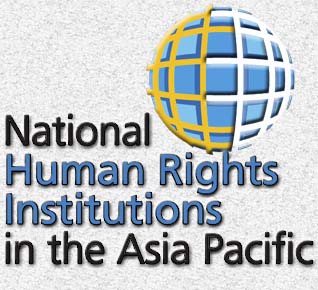NHRIs of South Asian nations pass resolution to promote national capacity building
 New Delhi, Apr. 17 : The National Human Rights Institutions of South Asian countries today passed a Resolution after a two day conference in New Delhi and agreed to work towards National Capacity Building through sharing of experience, information and best practices on human rights.
New Delhi, Apr. 17 : The National Human Rights Institutions of South Asian countries today passed a Resolution after a two day conference in New Delhi and agreed to work towards National Capacity Building through sharing of experience, information and best practices on human rights.
They also agreed to take steps to promote human rights awareness by holding conferences of NHRIs atleast once in two years in addition to exchanges of visits, training programmes and bilateral or regional cooperation between these Institutions.
The Conference on ‘Human Rights Awareness and National Capacity Building’ was organized by the National Human Rights Commission of India and attended by Chairpersons, Members and representatives of six National Human Rights Institutions from Afghanistan, Bangladesh, Maldives, Nepal, Sri Lanka and India.
The Conference agreed that respective Governments will be appealed to support and provide necessary wherewithal to NHRIs to ensure that they become fully compliant with ‘Paris Principles’ which includes administrative and financial autonomy.
During the two days of deliberations spread in four sessions, the issues of legal framework for promotion and protection of human rights, institutional arrangements and measures undertaken for promotion and protection of human rights, building human rights awareness and international cooperation were discussed.
Earlier, inaugurating the conference on 16th April, 2009, the Chief Justice of India, Mr. Justice K. G. Balakrishnan said, public expectations from NHRIs have increased with awareness about Constitutional Rights.
He said, promotion of human rights faces considerable challenges in the South Asian Region given the frequent terrorist attacks, communal violence and pervasive exploitation on account of caste and gender differences.
Justice Balakrishnan said, despite most of the South Asian countries having established human rights institutions, there are persistent criticisms about their lack of independence, initiatives and effective powers.
He said, in real sense the realization of civil and political rights is impossible without enjoyment of economic and social rights. He said, there is a special responsibility upon human right bodies to actively confront social evils such as immoral trafficking and forced prostitution.
Institutions in South Asia need to be proactive in responding to instances of exploitation by private parties also. He highlighted the importance of educational institutions and non-governmental organizations in promotion of human rights.
Addressing the gathering, the NHRC of India Chairperson, Mr. Justice S. Rajendra Babu said, it is important for a State committed to human rights to establish a national infrastructure including relevant institutions which can promote and protect human rights.
He also advocated the need for an effective mechanism to keep a check on the activities of the existing human rights institutions to ensure their accountability.
Justice Rajendra Babu said, NHRIs have now evolved as a significant player on both the national and international fronts instead of just acting as liaison points for the United Nations. He said, the Paris conference Principles require that the National Human Rights Institutions be given a broad mandate to enforce human rights and enjoy absolute independence from Governments. (ANI)